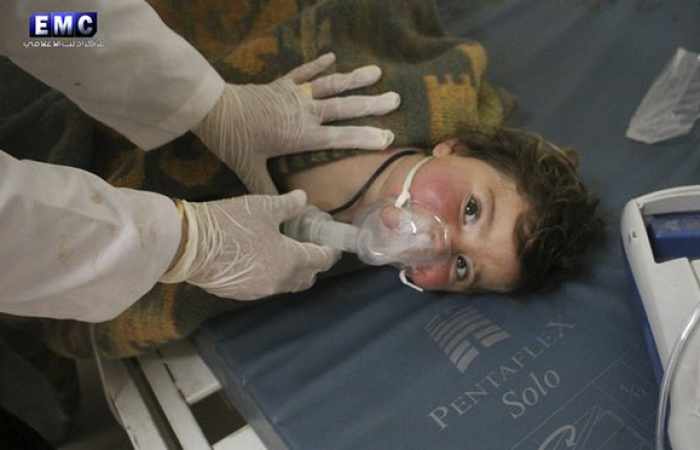Donald Trump last night followed Ronald Reagan in 1982 and George Bush in 2001 as an isolationist turned interventionist in the Middle East. His past pragmatism towards Syria’s Assad regime and its Russian backers underwent a 180-degree turn as 59 American missiles rained down on a Syrian airbase. Welcome back to mission creep.
Breaking from dinner with the Chinese leader, Trump spoke of his reaction to “slow and brutal deaths”, choking bodies and beautiful babies. He three times invoked God. He had been moved to act, he said, because Assad’s “attack on children had a big impact on me”. As for Russia’s role in the attack, Trump’s secretary of state said it was “either complicit or incompetent”.
Any follower of the atrocity-ridden war in Syria will accept that Assad’s military machine deserved more than verbal reproof for its continued use of chemical weapons. This was in defiance of the rules of war and specific pledges to abandon them. But given that Russia will not curb Assad and indicated a veto on any UN reaction, the world has sometimes to admit its inability to make a constructive response.
Emotion, however justifiable, remains a terrible guide to foreign policy, and nowhere more so than in the Middle East. Trump in Syria is eerily re-enacting Reagan’s 1982 reaction to the Sabra and Shatila camp massacres in adjacent Lebanon, which sucked American marines into an unwinnable civil war from which they had to “cut and run”.
Trump covered his decision, not by claiming a right to administer global punishment, but by claiming that America had a “vital national security interest” to oppose chemical weapons and suppress terrorism. The first is nonsense and the other futile and hypocritical. America’s “shock and awe” in bombing of civilian targets and its drone killings are terrorism.
Many countries can signal their virtue by deploring chemical attacks, but the west’s fragmentation, phosphorous and delayed action bombs have left victims just as maimed and dead. Drones devastate the innocent as much as the guilty. Where such deployments are vital for national survival they may be “just”. Where they are mere gestures of moral interventionism they are not. Does Trump mean to follow up with ground troops – as already in Iraq? Or is this literally a gesture?
The only way the Syrian war is likely to end is for the opposition to Assad to admit defeat and for Isis to be driven from its remaining havens. Russia’s pragmatism in supporting Assad, crude and “incompetent” as it may be, at least has realpolitik on its side. Past Anglo-American attempts to encourage the opposition have been cruelly farcical. The west has no “interest” in the Syrian civil war, which its interventions have done nothing but prolong.
The world has a universal humanitarian obligation to help the victims of war. There are some 3 million such casualties of the Syrian war, spread across the region and into Europe. Relieving, not prolonging, their suffering should be the priority. Dropping ever more bombs on Syria does nothing for them.
Simon Jenkins is a journalist and author. He writes for the Guardian as well as broadcasting for the BBC.
More about: #US-Russia #Syria
















































